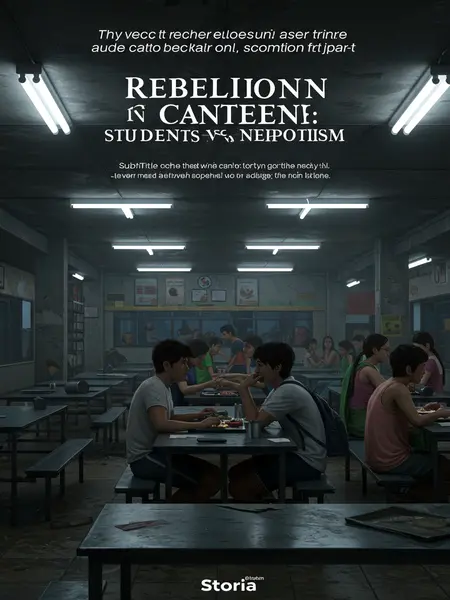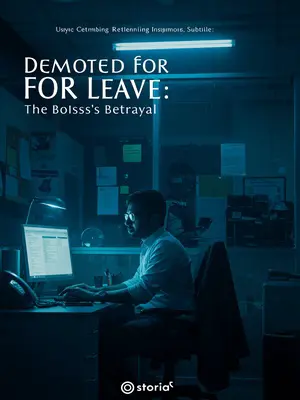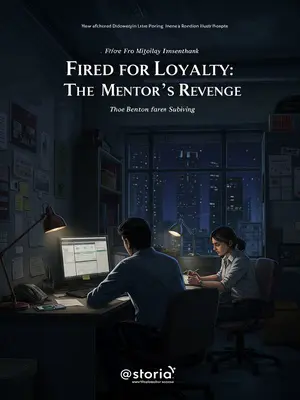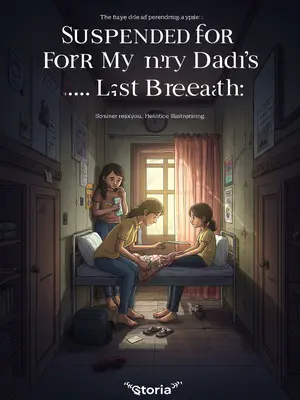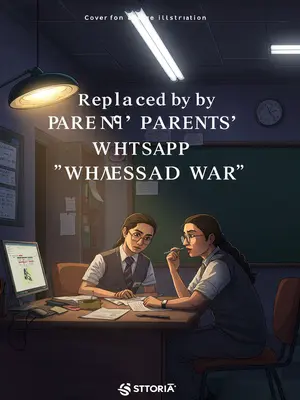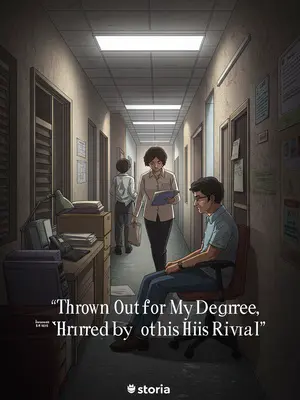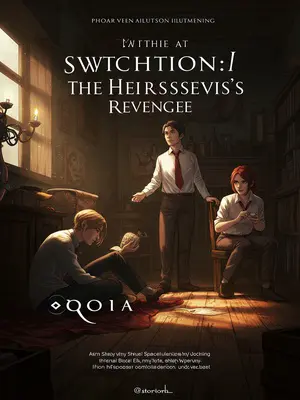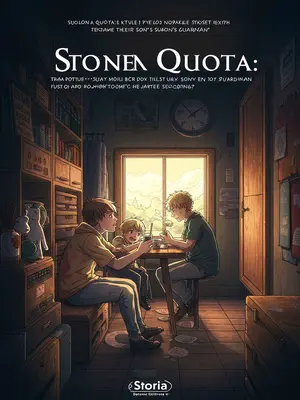Chapter 5: Humiliation and Uprising
But there’s no wall in the world the wind can’t pass through. Gossip travels faster than the peon’s bell after last period. That damned canteen manager found out anyway.
We heard whispers in the corridor, kitchen helpers glancing our way, air tense. That noon, Sir was late. Our WhatsApp group buzzed with worry. We waited, stomachs rumbling. Someone peeked out the window. Still no sign of Sir.
He’d promised to bring food and told us to wait in the classroom. We’d skipped games period in excitement, but more than twenty minutes after the time, no sign of him. Akhil paced, chewing his nails. Swati sat silent. I slipped out, heart pounding, shoes squeaking. Please, God, let nothing have happened.
After searching, I saw him at the school gate, standing under the neem tree, sweat trickling down his neck. The sun beat down, heat shimmering. In front of him, the canteen manager loomed, face red and puffy, yelling, spit flying. Somewhere, a dog barked in the distance, as if even the street animals could sense the drama.
My teacher is almost fifty, getting scolded like a schoolboy by that fat uncle. Sir kept his head low, hands folded, not daring to look up. The sight made something hot and angry bubble up inside me.
My fists clenched. How dare he speak to Sir like that? Who gave him the right? Closer, I heard that fat uncle say, “I’ve never seen such a shameless class teacher. Not thinking about studies, just making special meals for students. If something happens, can you take responsibility?” He flicked his wrist, gold ring flashing, as if even Sir was beneath him. I saw him once wipe his forehead with a handkerchief, then throw it at a helper to pick up.
Sir replied softly, “The kids are growing, they get hungry easily. If they don’t eat their fill, they won’t have the energy to study.” Even now, Sir’s voice was gentle, respectful, trying to reason with a man who’d forgotten all decency. He gave that fat uncle more respect than he deserved, not even mentioning the canteen’s fault.
But the fat uncle just got worse: “If they’re hungry, let them come to the canteen. Why do you care? Are you a class teacher or a cook?”
The teacher’s wife came over, trying to make peace. She adjusted her pallu, voice trembling: “Sorry, we know we were wrong, but since the food’s already made, just let them eat it this once. I promise it won’t happen again.”
“Khud kha le, saala!” the fat guy snapped, snatching the bag from her and smashing it to the ground. The Tupperware cracked, milk leaking out onto the hot earth. White milk spread, food covered in dust. The smell of home-cooked food mixed with mud and loss. Aunty cried out, squatting to save it, but he stomped on the tiffin first, grinding it into the ground: “Let you eat, let you eat, eat shit!”
The teacher froze, then trembled. “You’re going too far. The kids just want a meal.” His voice shook, small and defeated. I’ll never forget that sight.
The fat guy swaggered, “So what?” He kicked an orange away, sending it rolling under the gate. Such a petty, childish move, but it stung.
“Bloody hell!” I rushed over to punch him, but Sir grabbed me. My rage took over—I don’t even remember moving. Sir’s hand caught my wrist. Aunty hugged me, her sari smelling of turmeric and old tears. Sir’s grip was desperate.
“This is the kind of student you teach?” the fat guy sneered. “Truly, a guru produces good students!” He laughed, sound bouncing off the empty grounds. “Good teacher, good student, ha!”
I pointed and cursed: “If you bark like a dog again, I’ll knock your teeth out!” Akhil would’ve been proud—half-Hindi, half-English, all rage.
The fat guy stormed over, threatening, “Say that again?” But I wasn’t scared. I was about to speak, but Aunty covered my mouth, dragging me away. Her hand tasted salty with tears.
Sir pleaded, “He’s just a child. Please, let it go.” The fat guy jabbed his finger at Sir’s nose: “Get lost!” With a final, vicious jab, he dismissed us all like insects. Sir turned away, back stooped.
I shook with anger. “Aunty, this is too much. Are we supposed to just take this?” She said quietly, pain in her eyes, “He’s got the principal backing him. We can’t fight him.”
I felt helpless. In India, sometimes it feels like power always wins. She sighed: “Your teacher’s about to retire. Do you want him to get in trouble now?”
A heavy silence. I thought of all Sir had done, and my anger melted into guilt. She tucked my hair behind my ear, motherly and gentle. “You’ll be a senior next semester. Study hard, get into a good college. That’s your teacher’s only wish. Listen, you still have a long road ahead—it’s okay to take a step back.”
Her words hit me harder than any slap. I blinked, refusing to let the tears fall. “Aunty, I promise,” I whispered. She was right. We’d already dragged Sir into this; I can’t bring him more trouble. Some battles are worth fighting, some have to wait. Sir’s sacrifice wasn’t for nothing.
I made up my mind. “I’ll listen to you, I’ll go back now.” She squeezed my hand, relief in her tired eyes. “Good child.”
Back in the classroom, everyone’s eyes were on me. I kept my head high. After a while, when I thought she’d gone, I set off for the canteen. The moment I stood up, the whole class stood too! Chairs scraped, bodies rose as one. The energy was electric—a silent revolution. Akhil grinned, Sandeep winked, Swati cracked her knuckles. Like a cricket team ready to take the field.
The class prefect said, “I saw it too. Sir got scolded because of us. If we’re going to get back at them, we can’t let you take all the blame!” Everyone nodded: “Exactly!” Voices overlapped—“We’re with you, yaar!” “Time to show them!”
At that moment, I felt a rush of blood to my head. My cheeks burned, heart thumped. This is what true friendship looks like. For a moment, I could almost hear the dhol, a thousand ancestors cheering us on.
Bas karo na, what’s the big deal! If they think students are powerless, they’re about to get a lesson in unity. If you’re going to go down, go down in style—I’m not afraid!
I straightened my collar, raised my fist, and shouted: “Smash the bloody canteen!”
A cry echoed from every corner. This was no longer just about food—this was about respect, about dignity, about never letting anyone grind us into the dust again. In that moment, our classroom wasn’t a prison—it was a maidan, and we were ready for our azaadi.
